Today marks 533 years since the fall of Granada, the last remnant of Islamic authority in the Iberian Peninsula.
The fall of Granada in 1492 marked the end of Islamic rule in Spain and the conclusion of the Reconquista, a centuries-long campaign by Christian kingdoms to reclaim the Iberian Peninsula. The Catholic Monarchs, Ferdinand and Isabella, took control of Granada, initially promising religious tolerance but quickly reneging on this with policies of forced conversion, expulsion, and persecution of Muslims and Jews. This culminated in the Spanish Inquisition, which sought to enforce religious orthodoxy through interrogation, torture, and executions. These actions led to the decline of Islamic cultural and intellectual contributions in Spain and set a precedent for religious intolerance.
This event also had global repercussions. In the same year, Ferdinand and Isabella sponsored Christopher Columbus’s voyage to the Americas, inaugurating European colonization and the Age of Exploration. The conquest of the New World brought immense wealth to Spain but devastated indigenous civilizations. Meanwhile, the expulsion of Muslims and Jews impoverished Spain culturally and economically, while the Islamophobic policies of the era cast a long shadow. Today, the fall of Granada symbolizes both the richness of medieval coexistence and the destructive consequences of intolerance, serving as a historical lesson on the importance of cultural and religious inclusivity.
Scroll down to check out the latest news and books IHRC Bookshop has in stock.
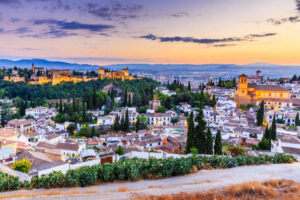 Enrolment Call: Granada Critical Muslim Studies Summer School 2025
Enrolment Call: Granada Critical Muslim Studies Summer School 2025
Critical Muslim Studies is inspired by a need for opening up a space for intellectually rigorous and socially committed explorations between decolonial thinking and studies of Muslims, Islam and the Islamicate. Critical Muslim Studies does not take Islam as only a spiritual tradition, or a civilization, but also as a possibility of a decolonial epistemic perspective that suggests contributions and responses to the problems facing humankind today. It offers an opportunity to interpret and understand Muslim phenomena in ways that does not reproduce Eurocentrism, Islamophobia or takfiri exclusivism.
DATE: June 23-28, 2025
Application Deadline: February 1, 2025
The Granada Summer School began in 2011 as a means of acknowledging the linkages between the conquest of Granada (Al-Andalus) and the conquest of the ‘Americas.’ Towards the end of 1491, Granada, the last independent Islamicate polity in Iberia, was conquered.
Granada is the site not only of the processes that led to the establishment of a Western world order but also to the displacement of the Muslim world system. As such, it is a natural venue for the development of Critical Muslim Studies, which sets out to explore the consequences of placing Muslims, Islam and the Islamicate within the context of a “modern/colonial capitalist/patriarchal western-centric/Christian-centric world-system.”
The summer school, now in its twelfth year, has established itself as the primary centre in the world for Critical Muslim Studies. The school welcomes participations from Muslim and non-Muslim heritages and associations. The seminar will be held in the Escuela de Estudios Arabes.
WEBSITE: http://www.dialogoglobal.com/granada
Any questions: CIT@dialogoglobal.com
Online application form: http://www.dialogoglobal.com/granada/application.php
This program includes:
1) Intensive academic lectures
2) Guided tours to the Alhambra Palace, the Cordoba Mosque, Medina de Sahara, Andalusi House, Museum of Al-Andalus, Albaizin and surrounding areas related to Al-Andalus.
3) Islamic spirituality
Affiliated Faculty:
- Joseph Massad
- Ella Shohat
- Hatem Bazian
- Suhaib Will Webb
- Ramón Grosfoguel
- Chaimaa Boukharsa
- Houria Bouteldja
- Muhammad Asi
- Farid Esack
- Amina Teslima
- Ashraf Kunnummal
- Mohamed Mathee
- Santiago Slabodsky
- Nelson Maldonado-Torres
- Arzu Merali
- Asma Barlas
- Nadia Fadil
- Jasmin Zine
- Iskander Abbasi
Yemen is enduring one of the world’s most devastating humanitarian crises, with two-thirds of its population—21.6 million people—requiring urgent aid and protection services. Years of conflict have displaced over 4.5 million Yemenis, many multiple times, making Yemen among the top six countries globally for internal displacement. Essential infrastructure is in ruins: half of health facilities and 65% of schools are non-functional, leaving over 2 million children out of education. Public sector workers, including health professionals and teachers, have gone without salaries for years, while nearly 90% of the population lacks access to public electricity, further compounding their plight.
The crisis has driven millions into extreme poverty, with more than 80% of Yemenis now living below the poverty line. Food insecurity is rampant, affecting 17 million people, including 3.2 million facing acute hunger. Yemen’s already precarious water situation has worsened, as damaged infrastructure and water scarcity force millions, often women and children, to travel long distances for clean water, exposing them to health risks. The combination of conflict, poverty, and failing infrastructure has created a catastrophic environment, leaving millions vulnerable to famine, disease, and displacement. If you would like to donate and help the Yemeni people, please click below.
WATCH: IHRC DOCUMENTARY – ZONE OF NON-BEING
IHRC’s evocative film looks at the so-called ‘war on terror’ through the lens of colonial history. Rather than a brutal exception to current history, the film’s contributors discuss Guantanamo, the so-called ‘war on terror’ including drone strikes within a history of racist domination and colonisation since 1492, using Frantz Fanon’s concept of the Zone of Non-Being. Click here to watch the video.
Contributors to the film include: Ramon Grosfoguel, Victoria Brittain, Amrit Wilson, Arun Kundnani, Clive Stafford Smith, Massoud Shadjareh, Omar Deghayes, Saifollah Mubanga, Andy Worthington, Michael Ratner.
Watch the Q&A with a specialist panel, including the film’s producer here.
THROWBACK: GMD 2012: Professor Ramón Grosfoguel on his paper ‘Decolonising the Holocaust’
IHRC held the third annual Genocide Memorial Day on 22 January 2012 at the Brunei Gallery, SOAS in London. One of the guest speakers was Professor Ramón Grosfoguel who discussed his paper ‘Decolonising the Holocaust’. Please click below to watch the recording of the talk.
Professor Ramón Grosfoguel is a Puerto Rican sociologist and professor at UC Berkeley.
Below are books that are currently available at IHRC Bookshop:
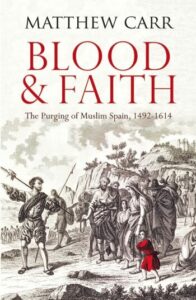 Blood & Faith: The Purging of Muslim Spain, 1492-1614 – Matthew Carr
Blood & Faith: The Purging of Muslim Spain, 1492-1614 – Matthew Carr
The expulsion of the Moriscos in 1609, following centuries of Muslim rule in Spain, is a lesser-known but devastating chapter of history. After Spain’s unification under Queen Isabella and King Ferdinand in 1492, the coexistence of Christians and Muslims deteriorated, with increasing pressure on Iberian Muslims to convert to Catholicism. By 1609, these converts, known as Moriscos, were accused of heresy and apostasy, leading to an edict of expulsion.
Over five years, approximately 350,000 Moriscos were forced to leave Spain, enduring immense suffering, including death, robbery, and violence, during their forced migration to North Africa. This tragedy, as analyzed by Carr, serves as a sobering reminder of the dangers of religious intolerance and xenophobia.
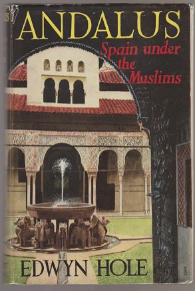 Andalus: Spain Under the Muslims – Edwyn Hole
Andalus: Spain Under the Muslims – Edwyn Hole
In this book, the product of five years’ residence in Andalusia, the author opens up an exciting and colourful period in history that inexplicably has never attracted English historians or romantic novelists, although it offers material for a score of books. “Andalus” is the name under which the Arabs knew Spain, when the Muslim Empire extended from the Indus to the Pillars of Hercules.
It was conquered with surprising ease in the eighth century, and remained in Muslim hands till the fifteenth. It attained its full flowering in the tenth century, when the all-powerful Caliph Abd al-Rahman reigned in Cordoba and his city-palace of al-Zahra out-rivalled the fabulous court of Harun al-Rashid in Baghdad. Andalus knew a degree of civilization in comparison with which the contemporary Christian kingdoms of Western Europe were still in the dark ages.
After a brief historical outline, the author deals at length with the fascinating and full-blooded mixture of races that made up the population, with their government and diplomacy, their attitude towards women and slaves, their sports and pastimes, and their passion for poetry. He closes with a portrait-gallery of five outstanding and very dissimilar Andalusians, and thus rounds off a most knowledgeable and vivid account of a country and a people unique in Western Europe.
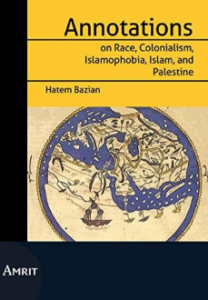 Annotations on Race, Colonialism, Islamophobia, Islam and Palestine – Hatem Bazian
Annotations on Race, Colonialism, Islamophobia, Islam and Palestine – Hatem Bazian
Annotations on Race is a tour of the force of incisive running commentary on the events that are shaping the world. With great passion and verve, the book covers an eclectic array of topics ranging from Muhammad Ali to the Arab Spring, from Du Bois to the NAFTA and immigration from Mexico. Bazian shows that insights in a decolonial reading are both an understanding and a call to action.
The Foundations of Islam – Qadi Iyad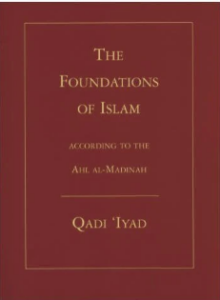
This book by the author of Ash-Shifa is a clear-cut manual laid out in five sections corresponding to the five pillars, and marked out with the simplicity of a basic technical manual. For each pillar the Fard, Sunna, Superogatory, Liked, Disliked and Prohibited are concisely listed, with special page markings for easy reference and study.
This book is useful for new Muslims but also for refreshing the knowledge of the basics of even the most learned scholars. Qadi Ayyad was born in Gibraltar. He was a high judge (kadi) in Grenada. He headed a revolt against the coming of the Almohades to Sebta, but lost and was banished to Tadla and later Marrakech. He was a pupil of Abu Abdullah bin Issa, of Imam Abu Abdullah bin Hamdine, of Abu Al Hassan bin Siradj and of Imam Abu Al walid Ibn Rushd. As the great imam of Sebta, Ayad ben Musa was apointed Qadi of Grenada. He was one of the most famous scholars of Maliki law. Qadi Ayyad bin Moussa is one of the seven saints of Marrakesh and is buried near Bab Aïlen. His main work is called Al-Shifa. The university of Marrakech (Cadi Ayyad) was named after him.
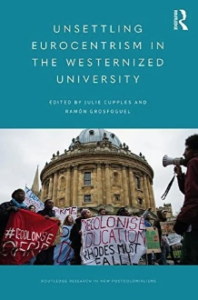 Unsettling Eurocentrism in the Westernized University – Edited by Julie Cupples and Ramón Grosfoguel
Unsettling Eurocentrism in the Westernized University – Edited by Julie Cupples and Ramón Grosfoguel
The westernized university is a site where the production of knowledge is embedded in Eurocentric epistemologies that are posited as objective, disembodied and universal and in which non-Eurocentric knowledges, such as black and indigenous ones, are largely marginalized or dismissed.
Consequently, it is an institution that produces racism, sexism and epistemic violence. While this is increasingly being challenged by student activists and some faculty, the westernized university continues to engage in diversity and internationalization initiatives that reproduce structural disadvantages and to work within neoliberal agendas that are incompatible with decolonization.
This book draws on decolonial theory to explore the ways in which Eurocentrism in the westernized university is both reproduced and unsettled. It outlines some of the challenges that accompany the decolonization of teaching, learning, research and policy, as well as providing examples of successful decolonial moments and processes. It draws on examples from universities in Europe, New Zealand and the Americas.
This book represents a highly timely contribution from both early career and established thinkers in the field. Its themes will be of interest to student activists and to academics and scholars who are seeking to decolonize their research and teaching. It constitutes a decolonizing intervention into the crisis in which the westernized university finds itself.
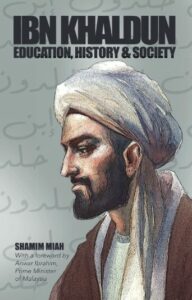 Ibn Khaldun: Education, History and Society – Shamim Miah
Ibn Khaldun: Education, History and Society – Shamim Miah
Ibn Khaldun (1332-1406) is a significant intellectual figure within the Muslim world.
He is seen as the founding father of sociology, whilst making significant contributions in the fields of history, economics and philosophy.
Despite the growth in the study of Ibn Khaldun in the west, his contributions to the field of social sciences is often limited to the academic community.
This book aims to bring the works of Ibn Khaldun to a much broader audience by drawing upon Ibn Khaldun’s Muqaddimah to provide insights into his ideas on education, sociology and history.

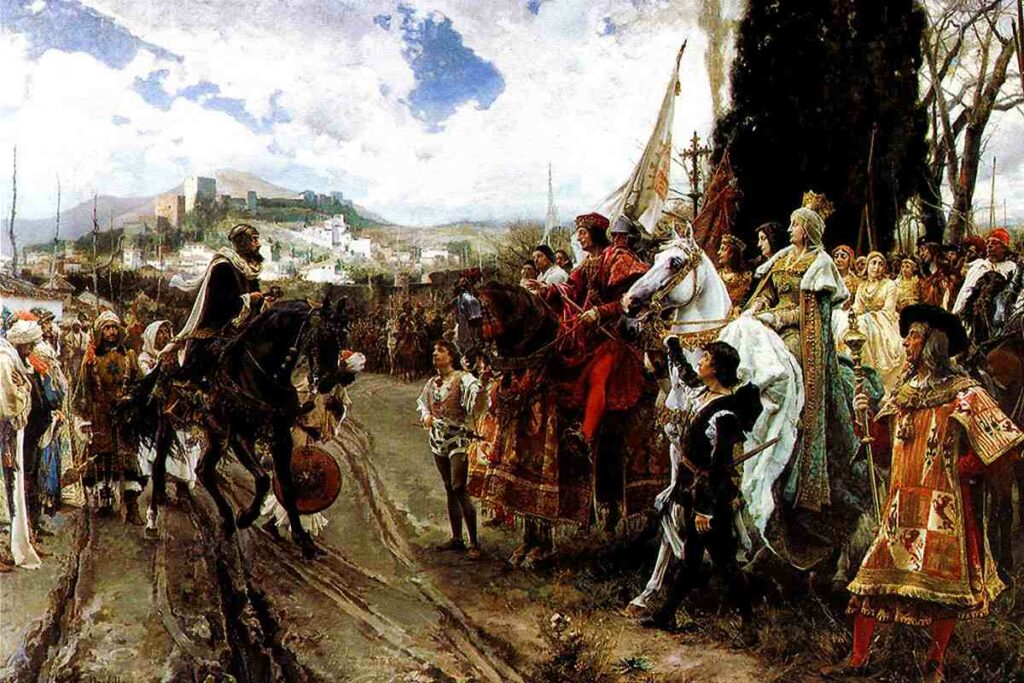
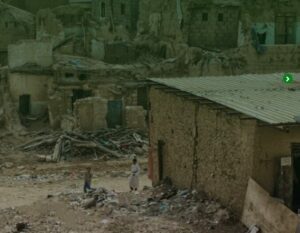 Urgent Yemen Appeal
Urgent Yemen Appeal




